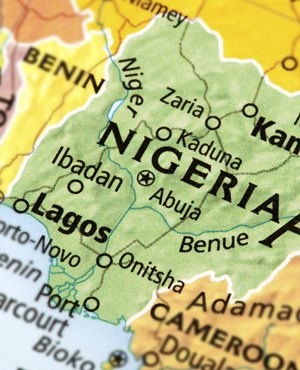Nigeria's central bank held its repo rate at 14% in its first meeting this year on Wednesday after a political standoff between the executive and the senate prevented a quorum for months.
"The committee decided ununanimously" to retain the rate, said central bank governor Godwin Emefiele.
Inflation has been steadily coming down in West Africa's largest economy, opening the door for easing monetary policy, though there are still concerns about foreign-exchange pressures.
"We think that rates will be cut later this year but they'll wait for inflation to ease a little bit before moving," said John Ashbourne, Africa economist at London-based Capital Economics.
Emefiele said in January that he would look at cutting interest rates if inflation - currently well outside the target band of 9% at 14% - is hovering closer to single digits.
"I want to think that between the end of the first and second quarter, we should begin to see easing," Emefiele said in an interview.
"I don't think they'll wait until (the interest rate) is back within target," said
FOLLOW News24 Africa on Twitter and Facebook.
Ashbourne, "he's been making statements that are quite dovish so I think he's chomping at the bit to make a cut."
Since its last meeting in November, several new members have joined the committee, and they were finally approved by the senate at the end of March.
In a spat typifying political dysfunction in Nigeria, the senate refused to confirm the committee members in protest of President Muhammadu Buhari's earlier appointment of anti-graft head Ibrahim Magu.
After being deadlocked for months, the senate finally "decided to do the right thing", according to a senate source, and confirmed the new members.
Nigeria is recovering from its worst recession in 25 years after the crash in global oil prices in 2014.
As a result of increased oil revenue, Nigeria's economy expanded 0.8% in 2017, but growth in non-oil sectors remains tepid.
